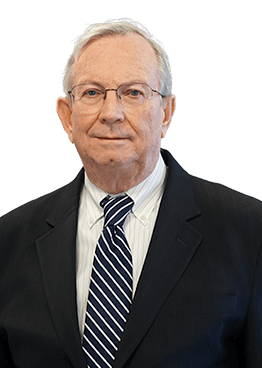Dilworth Paxson Partner Jim Rodgers Joined Practitioners and Law School Faculty in Submitting an Amicus Brief in the Eastern District of Pennsylvania
DP Partner Jim Rodgers recently joined 32 other practitioners and law school faculty in submitting an amicus brief in the Eastern District of Pennsylvania on an important issue regarding the scope of an attorney’s obligation to update a court on procedural developments in related matters under Rule 3.1 of the Rules of Professional Conduct and also implicating the special duties of prosecutors under RPC 3.8. The amici support the position of both the Philadelphia District Attorney’s Office and appointed counsel for a petitioner for habeas corpus in Martinez v. Delbalso, No. 2:19-cv-05606-SMG. Judge Mitchell Goldberg issued an order for the respondent attorneys to show cause why their conduct did not violate their duty of candor, coupled with a threat of possible sanctions.
The underlying facts involved a wrongful conviction 19 years ago that was the subject of both a state court Post Conviction Review Act petition and a federal petition for habeas corpus. Because the ground for the federal petition, a Brady violation for failure of the prosecution to disclose exculpatory evidence, had not been adjudicated in the state courts, the federal petition would be subject to a defense that state remedies had not been exhausted. The DAO informed Judge Goldberg that it was waiving the exhaustion defense because both the DAO and petitioner’s counsel recognized that the state court PCRA petition (in which the defendant was unrepresented) was unlikely to be resolved before the matter was ripe for decision in the federal court. While a hearing in federal court was scheduled, to the surprise of both DAO and petitioner’s counsel, the state court scheduled a status conference, and to the even greater surprise of counsel, at that conference, the state court granted the PCRA relief, to which both sides were agreeable. The parties then advised Judge Goldberg that the habeas matter was moot. Judge Goldberg felt that the parties were not only discourteous in failing to advise him of the scheduling of the status conference in state court but that this failure was a violation of the attorney’s duty of candor in failing to update him that the reason previously given for the DAO’s waiver of the exhaustion requirement had been superseded by events. Should Judge Goldberg find that the duty of candor under these circumstances, the result would be to punish volunteer counsel seeking to avoid a wrongful conviction, as well as prosecutors seeking to do justice rather than to prolong an adversarial stance once the error of the trial prosecutors was uncovered. This would be an unwarranted expansion of the scope of the duty of candor in the form of informing a court of developments that rendered a prior statement inoperative, where that statement was not material to the court’s jurisdiction or the merits of the claim before the court.


